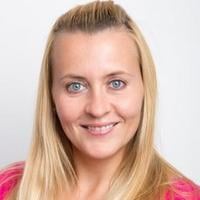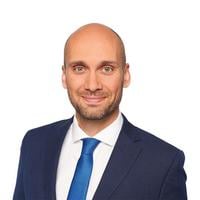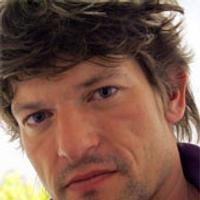You’ve been working in many countries, how did you feel about cultural difference?
I have very western background, I didn’t work in China or South America. But also western culture has many differences – obvious ones and also not so obvious. If you don’t understand them, you can’t adapt and your behaviour accordingly is not going to be very appropriate. Both as a worker and as a manager.
Was there anything strange caused by these differencies that happened?
Yes, absolutely. For example in France where people are more formal. I’ve been socialized by anglo-american schools so I tend to be quite informal. And in France it took me a while to realize not everything is about my value judgement. When everybody say formal is better, then you have to adapt to that. And there were some interactions with clients because I was consultant. Some clients didn’t listen to me because, for example, they didn’t accept the way I was dressed. Simply you have to know the rules of the game.
You worked in various companies like T-Mobile, Procter & Gamble prior to joining Dell. At the moment there’s big Dell’s campaign Restart Your Career. How your career changed by joining Dell company?
I think there are two aspects. The first one is I was little bit like coming home. The other one is I think Dell’s very young and informal culture. I like that. I came from T-Mobile that is subsidiary of Deutsche Telecom and in Germany thirty percent of employees are former civil servants of Ministry of Post and Telecommunications. So that was very different environment. Here I feel I can live company culture. For me it was really restart of my career.
((1))
Which way? Are you not so constrained?
Yes. I think there’s more willingness here than in most of other companies I have seen. To take risks or to change something into something different. Probably it is better to innovate too quickly than to be too slow. And I think you can accuse Dell of many things but not of being slow. And that’s important.
What you consider to be the most challenging part of your role as General Manager?
Because we’re young company and we grew very fast our processes often didn’t keep up. We permanently have to find ways how to adapt and improve our processes so we can function so effectively as we should. Therefore I’m big fan of BPI because we all have to learn about processes and how to improve them.
You have former experience mainly with marketing roles. Currently you’re also Sales Director. What’s the difference in Dell’s model comparing to other companies when talking about Marketing and Sales?
First I think it’s much more analytical and more data driven. It’s not only about good practice. I’m willing to drive out lot of ideas but then you have to have analysis behind to really understand the problem. You have to look at numbers and to be able to model different options. I think Dell’s one of the best companies doing it this way. There’s also relatively little politics involved here. I mean all big companies have some politics. Compared to other ones we have very little of that. It’s more objective and data driven.
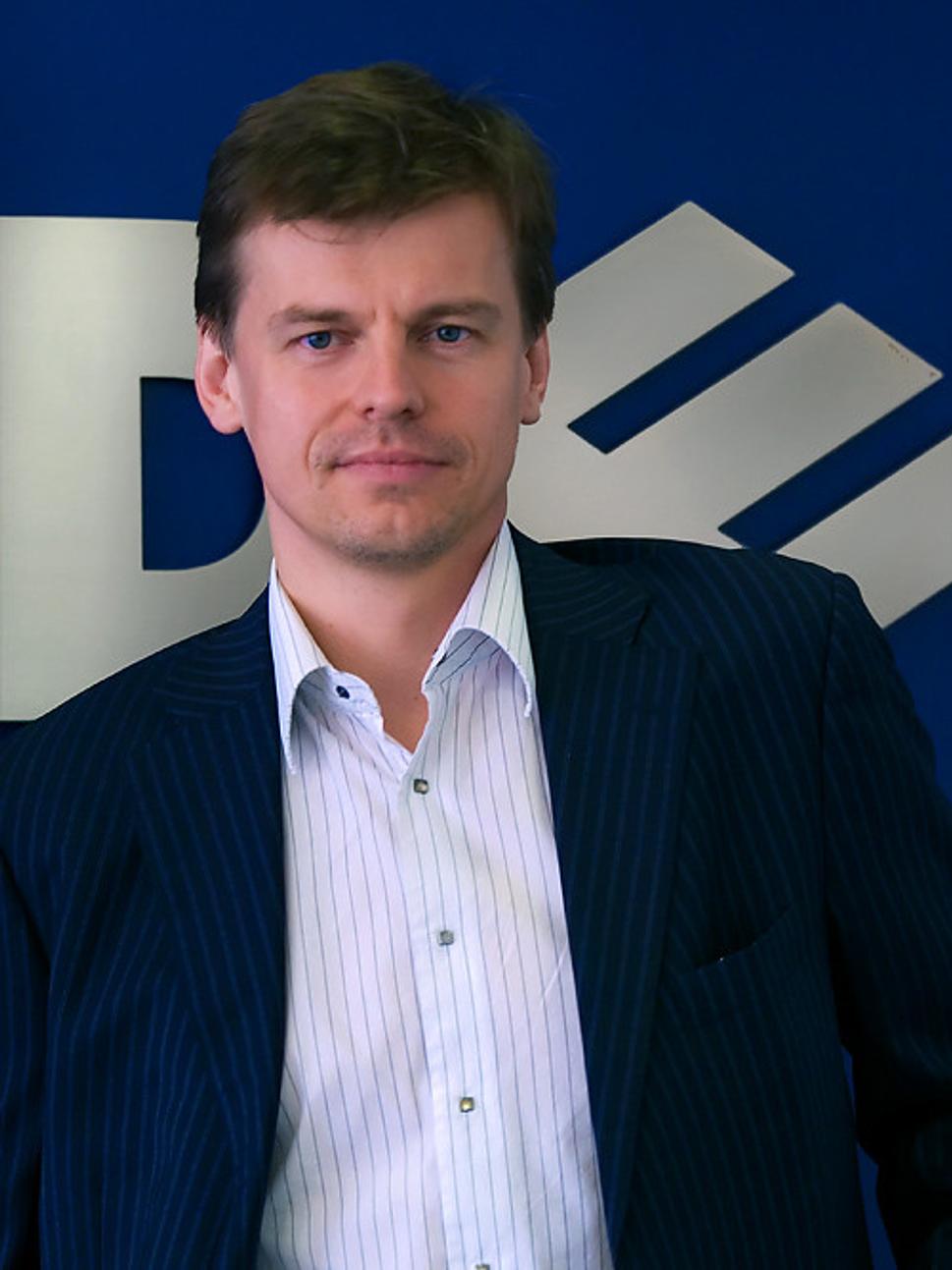
What is the main criteria when making decision?
I think it’s customer and data analysis. Let’s say I may have an idea what we could do different way in sales, but when we run a pilot and the numbers show it’s not working, then I’ll be the first person to say: “Let’s kill it and do something different”. So, yes, it is customer driven. Everything we change has to make life easier for customer. The same time everything we change has not to be based on somebody’s good feeling but on real analytical understanding of problem.
Let’s talk about Dell Bratislava that celebrated 5 years in December. Why the company decided for Bratislava?
That time they compared Bratislava to cities like Brno, Krakow or Budapest. There was smaller labour market here but you could find very good people with German and English skills. Then there’s very good flow of graduates, especially in Finance. We proved we can attract some of the best ones. Then you look at factors like tax rates, labour law. And Bratislava was the best one that time. Originally we didn’t plan to become such a big business center. That evolved based on success of this site.
((2))
Bratislava started as a Call Center for German and Austrian customers. Why here in Bratislava? Many people argue the reason was the low cost location.
Well, I think it’s lower cost in Germany. But it’s not just about lower costs, it’s also about labour law and the fact you can attract people here who are as good or better than in Germany. When you monitor performance in Bratislava and Halle you see there’s little difference in productivity and customer satisfaction. To give you example - in SMBR sales the customer satisfaction is higher with Bratislava this quarter. So we deliver very good quality in both sites and Bratislava has shown we can do as well or even better.
What is the main problem in Bratislava? Human resources?
That’s true. The country is not so big. You have to look at the number of people who graduate from secondary school or university because it’s relatively low share. And when you mentioned lower costs, if we looked only for it, by now we would be in Romania or Egypt. We’re not here only because of lower costs but because of good people working here. If we can’t get them anymore we will have to re-think our presence here. I’m personally optimistic but in order to find a talent we need to make more effort than we do on other sites.
So what about danger of moving to Ukraine or Russia once our region goes out of human resources?
I don’t think it’s a danger when talking about moving us from Bratislava. I think the issue is to get good supply of talent here, especially on German side. Maybe Slovak people underestimate importance of German. Not only when talking about call center but also in recpect to amount of trade with Germany, Austria and Switzerland and cultural interactions. This is one of the most important relationships we have in our neighbourhood. When young people at university or high school ask me for advice I always tell them to make sure they have fluent English and German. That will really open their career options.
((3))
Our Business Center was visited by CEO Micheal Dell. What is your personal experience to meet him, to talk to him?
Very fascinating. When you consider who he is, he’s one of the most richest men in the world and what he has built, he has remained personally quite modest. Some of the CEOs I met think they are the kings of the world. Michael is pretty normal. When you see the corporate culture it’s much informal, fast moving, data driven, not political. It’s very much reflection of Michael’s character.
Is it because he’s American?
I certainly think you find more informal in America than in many other countries. But I do think it’s not just about that. It’s about willingness to innovate. And that’s true for Michael Dell and for America as well. Companies can absorb immigrants from many other countries, to work together. And that’s fascinating. It’s something we could learn about.
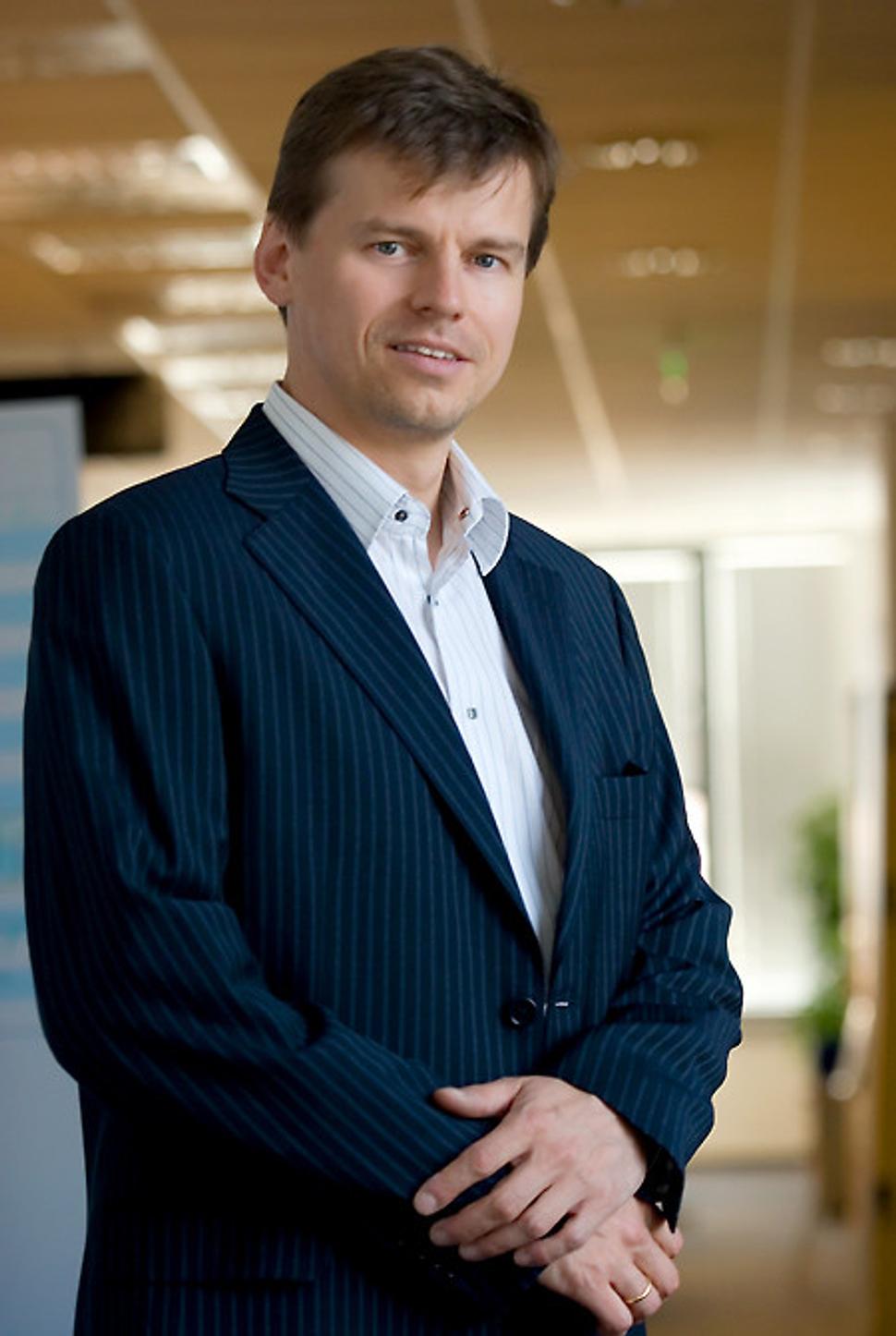
What about your work/life balance? You work in Bratislava and live in Vienna. You have three children.
That’s something I’ve been working on. The worst period in my life was when I worked for McKinsey Consulting. I was regularly coming home from ten to midnight. And because I have three children I know I have life out of office and have more discipline. The difference between working 80 and 50 hours is ability to organize oneself. I don’t think somebody who works 80 hours is necessarily more efficient than I’m. There’s a saying that says work tends to expand to fill the time available. So my work/life balance is much better. My kids see me a lot, I’m at home for dinner, at least one time a week I take them to kindergarden.
So what are your regular working hours?
They are very irregular. The advantage of my job is I’m flexible. For example when my son has a concert in kindergarden I can be there from one to three afternoon. Then I need to write some emails or to do some project work when they are asleep, but I’m able to arrange it. I like it and I think this is something we have to do – to allow people on our site to be more flexible.
((4))
What’s your opinion on home office?
I think it’s potentially motivational factor for some of our employees. As far as I’m concerned if the work is done, I’m really OK with it. Obviously sometimes you have to talk to other people, you have to meet other people.
I was really amazed with all your activities in the past. E.g. you’ve been the head of British-Austrian theater company Con mil amores. How did you manage it?
In different live I would become an actor. Actually I was very close to it. But I didn’t manage it. The reason is probably that I come from family of musicians and nobody has any money. But I enjoyed a lot to come from artistic family. Maybe I will do more arts when being 50 or 55.
What they (your family) do?
My Mom plays cembalo, my oldest brother is a music professor of Vienna University. He teaches flute. My sister is a baroque oboist My other sister is a musical singer.
What’s your favourite hobby? Is it related to culture?
I have difficulty to answer this question. I’m interested in lot of different things. But it is certainly theater and music. I spend a lot of time with my kids. They grow up in the city so I try to take them to the countryside. And the politics.
Why kind of politics?
Pretty much anything. I know lot about the US, it kind of my expertise. Occasionally I still write articles about that.
You been writing political commentaries or you’re still doing it. How this activity started?
I started it 16 years ago. I was student and I knew some guys who were editors. I sent them some ideas to be published it they were interested in.
I was surprised again to hear you speak fluently 5 languages. Why Greek and Finnish?
My father worked in Finland and I went to school there. But I never practiced it so I have forgotten a lot. And Greek because my wife is Greek and my children speak Greek. We spend at least four or five weeks a year in Greece. I’m not good enough in this language so I have to learn with my children.
((5))
What is your experience with Slovak people?
It’s very positive. I really like the country. I love city of Bratislava. We often come here to stay over the weekend. We have very close friends here and I think the country has great potential in many ways – obviously the human potential. Also if you look at the landscape, this country has many to achieve. And I’m happy to consider how far you came in just 15 years.
Did you have a chance to take your family to High Tatras?
Yes, we’ve been several times to High Tatras. Occasionally I travel to the area around Zilina. I haven’t been much to the east, for example I have yet to visit Kosice.
What is your opinion on Slovak economy?
I think it’s very strong. Current government is at least not doing anything to harm it.
There are many complaints this government is doing rather negative steps for transnational corporations.
Well, I think the behaviour is not so unfriendly as their rhetoric. Although it’s not business “superfriendly”. I think there’s sensible compromise between current government and the opposition what economy should look like.
Do you have meetings with Slovak government members?
Yes, I’ve met several ministers at business meetings. We invited some of them to Dell. For example Mr. Jahnatek, Mrs. Tomanova. Dzurinda and Miklos have been here in the past.
When talking about General Managers, they often take part in social programmes or charity. What about yourself?
I think it’s very important and I would encourage everybody to do so. It depends much on your time and family, but if you find time it is really very good. I’m involved in couple of things myself. One is Business Leaders Forum. That one is focused on transparency, good governmance, fighting corruption. I would encourage everybody to do charity work, it’s very rewarding.
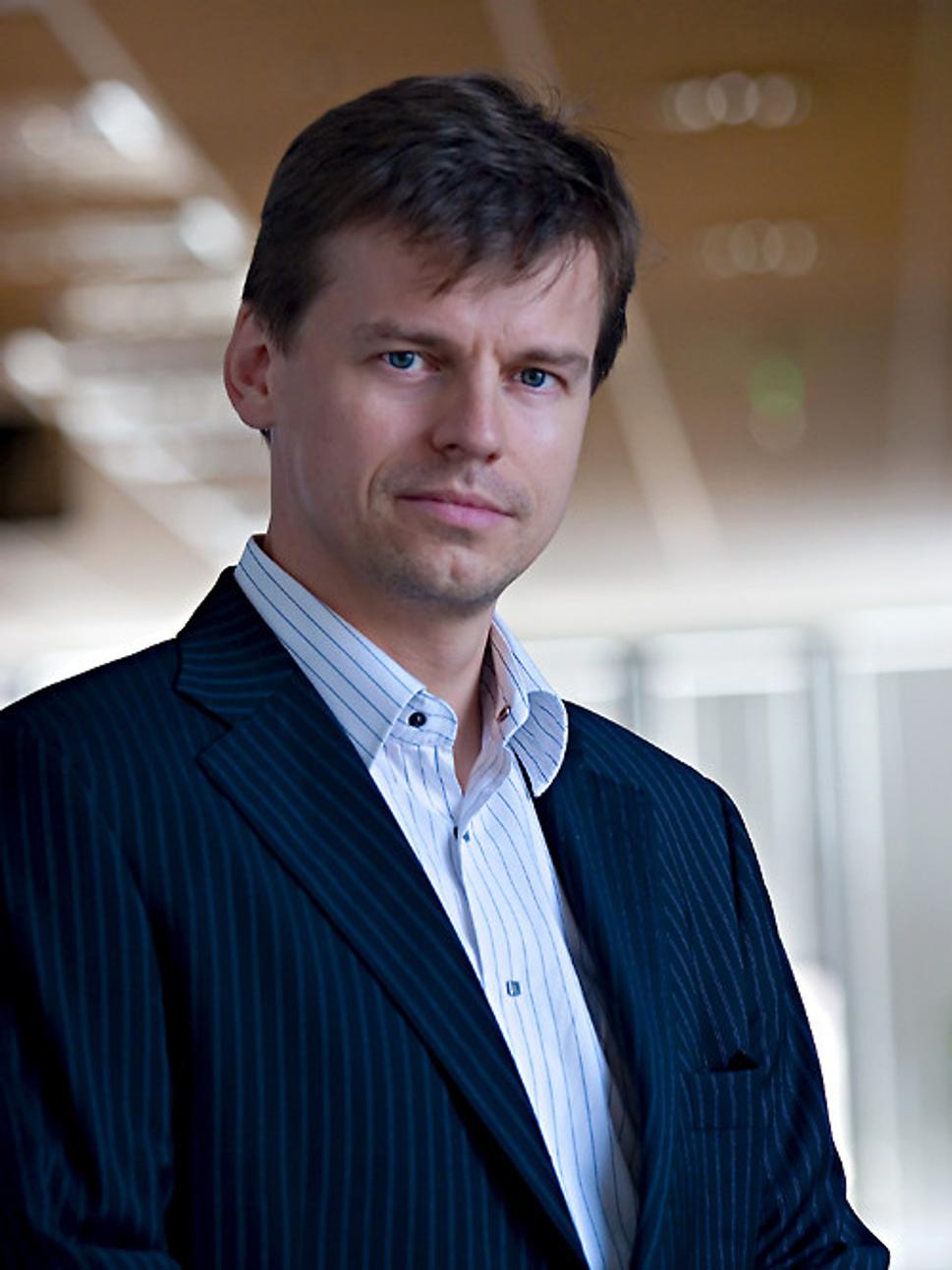
What way rewarding?
I think you have a good feeling because humans are social beings. If you can make somebody feeling happier you also become happy yourself. It’s good not to worry always only about oneself but also about what other people are doing.
Few days ago we fixed exchange rate to Euro. Do you expect any possible impact on Dell in this region?
I think generally in business certainty is better than uncertainty because we can plan better. I think to join Euro is excellent thing for the country. You will see it in 20, 30 years when looking back. Lot of things will tend to become cheaper with Euro but those ones are bigger things like cars. Other things will become more expensive – some basic foods, coffee. But people buy it more often than cars. So the perceived inflation might go up, not the real one.
The complaints of people were like the Slovak crown is still stronger so we didn’t feel so much let’s say increasing prices of oil.
That’s true for Euro as well as it keeps increasing value against Dolar. I think if you had decided not to join Euro you wouldn’t have so much benefit like when expecting to join it. The Slovak crown would become much more open for speculations. And it is better to have more stable currency.
Back in 1992 you hosted Vienna based conference about Emerging markets – in name Central and Eastern Europe. What are interesting markets for company like Dell nowadays?
I think it changes. Obviously BRIC countries – Brazil, Russia, India, China, especially last two of them are important markets. Russia will go very well, also Ukraine, there’s big potential in Turkey. The North Africa. The great thing about globalization is there are always more markets coming into the global economy.
What would you wish in your professional career and personal life in next years?
As one famous sportsman said it’s very hard to make predictions, especially about the future. My mind is not set much to achieve certain goals. I’m opened to what happens in life and want to keep challenging myself and keep learning. And I have older parents. So I realize if you’re not heathly anything else is not worth.
Pictures - by Dell company.

